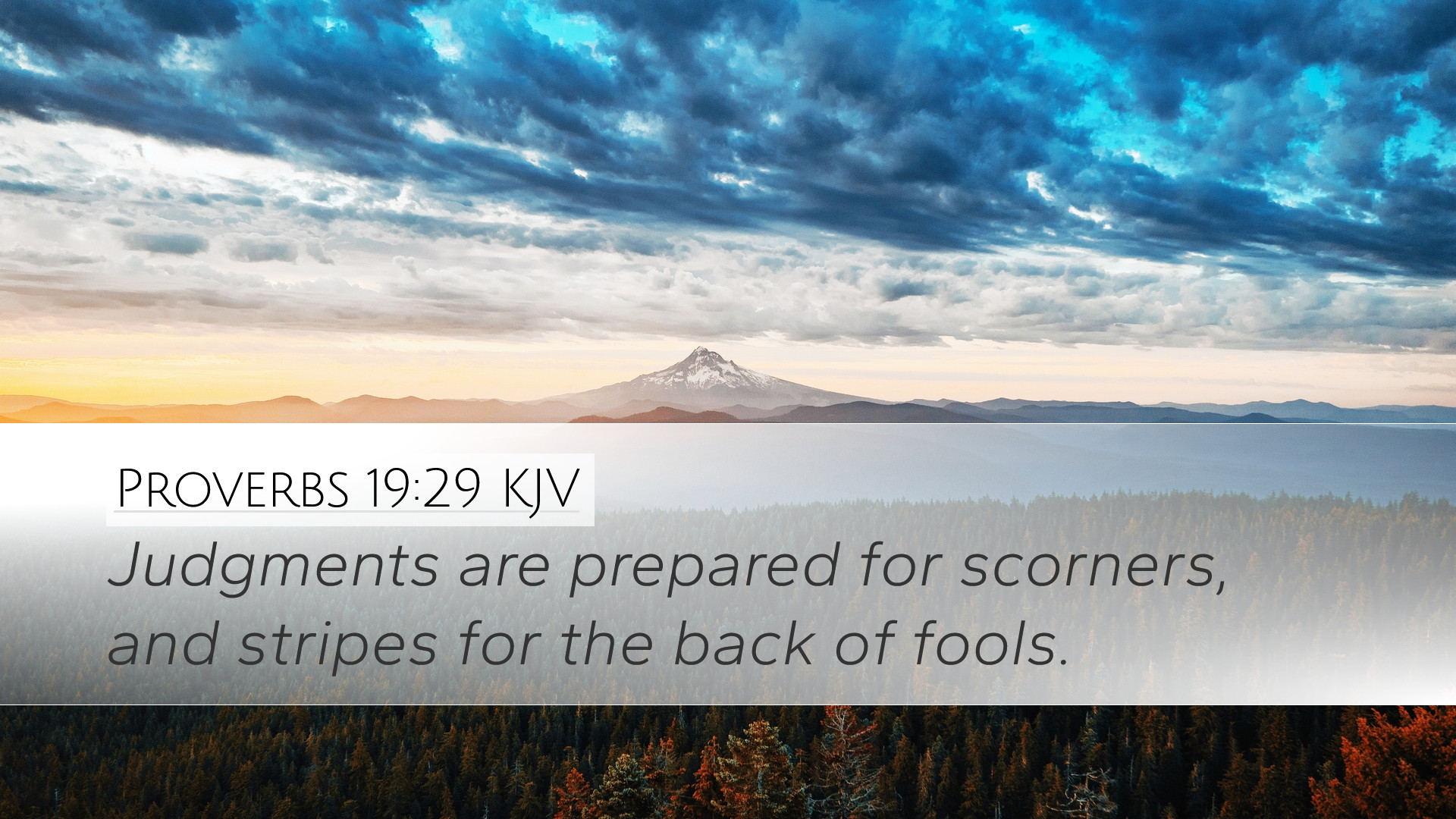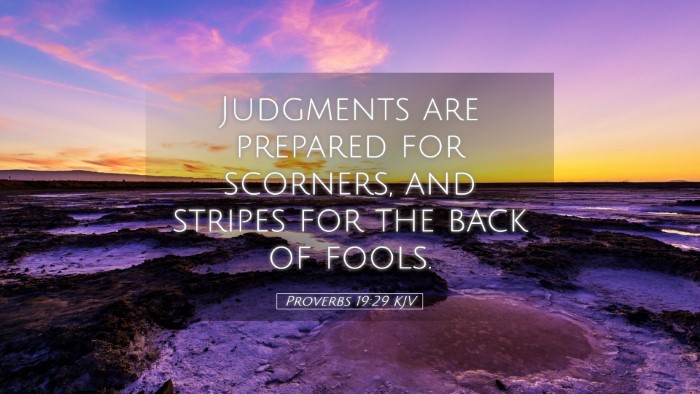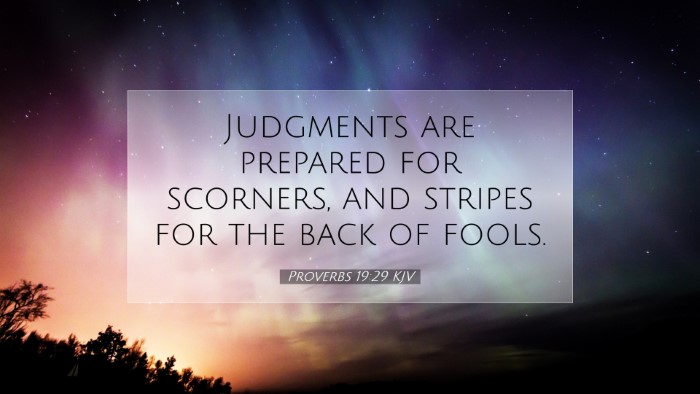Commentary on Proverbs 19:29
Proverbs 19:29 states, "Judgments are prepared for scorners, and stripes for the back of fools." This verse encapsulates a profound wisdom concerning divine justice and the consequences of folly and mockery.
Insight from Matthew Henry
Matthew Henry emphasizes the theme of divine judgment against the foolish and scornful. He explains that the term scorners refers to those who arrogantly reject wisdom and mock the principles of righteousness. Scorners are often characterized by their disdain for instruction and a hardened heart toward wise counsel.
Henry advises that while the scorner may appear to prosper for a time, their judgment is already established. He highlights that judgments are not arbitrary but prepared, showing God's foreknowledge and justice. The use of “stripes for the back of fools” indicates that punishment is not just a consequence but a correction intended to bring about a change in character.
Insights from Albert Barnes
Albert Barnes elaborates on the implications of God’s judgments. He states that scorners face definitive judgments as a result of their contemptuous attitudes towards wisdom. Barnes draws attention to the contrast between the scorner and the wise, emphasizing that while the wise seek knowledge and embrace correction, scorners persist in their folly.
He also discusses the phrase “stripes for the back of fools” as indicative of the physical and moral pain that comes from foolishness. Barnes suggests that this suffering serves as a wake-up call, urging the fool to recognize their folly and repent. The verse serves as a reminder of the inevitable consequences faced by those who resist wisdom and chose mockery over understanding.
Understanding Adam Clarke's Perspective
Adam Clarke notes the instructive nature of this proverb in the contrast drawn between scorners and the wise. He interprets “judgments are prepared for scorners” as a way of illustrating God's provision for justice. Clarke suggests that the scornful will encounter divine discipline that is set in place to correct their path.
Moreover, Clarke emphasizes that the “stripes for the back of fools” not only imply physical punishment but also a deeper spiritual correction. He notes that there is an intrinsic link between one's moral choices and the repercussions that stem from them; thus, fools bring upon themselves their sorrows through their refusal to heed wisdom.
Thematic Developments
- Divine Justice: The verse underscores the concept of God's justice being enacted upon those who reject wisdom.
- Consequences of Mockery: The mocking attitude towards godly instruction leads to pre-established negative outcomes.
- Correction and Discipline: Both commentary sources highlight that the purpose of judgment is often corrective rather than purely punitive.
Practical Applications
For pastors, students, and theologians, Proverbs 19:29 serves as a crucial reminder of the importance of approaching wisdom with humility. Engaging with the text prompts believers to consider how they respond to correction:
- Reflect on attitudes towards authority and instruction.
- Encourage openness to wisdom, recognizing that correction is often a pathway to growth.
- Understand that denying wisdom can lead to grievous consequences, both in this life and spiritually.
Conclusion
In summary, Proverbs 19:29 encapsulates an essential message about the outcomes of scorn and folly. Through the insights of Matthew Henry, Albert Barnes, and Adam Clarke, we see a collective warning against the dangers of mocking wisdom and the implicit call to embrace correction. As modern readers and practitioners of faith, it is our duty to foster an attitude of humility and receptiveness towards divine guidance.


